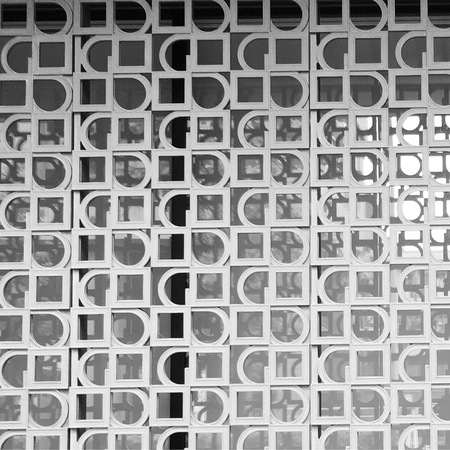秩序をコントロールすれば
建築計画の向かう先、辿り着く先を、完璧な秩序を持った場所か、少なくともそこを目指してしまう。
病院とか、刑務所とかは、建築計画として、絶対に破綻せずに、完璧さ、完璧な秩序が求められる。
ただ、全ての建築計画が完璧な秩序を持っている必要は無く、標準的な人間を想定して、その人間が完璧に立ち振る舞いができる空間を目指すのが建築計画だから、最初の標準的な人間の想定が変われば、完璧な秩序でなくても良いはずになる。
そこに、個別の人を介在させる余地が生まれ、また秩序には、街並みの、地域の、敷地の秩序があるから、秩序を媒介にして、地域と個人を結びつけることができる。
この場合の個人は、特定でもいいし、不特定でもいい。
秩序をコントロールすることにより、地域と個人を結びつけ、建築そのものの計画をそこでしかできないものにする可能性があるのではないか。
地域の秩序は、その土地の文脈/コンテクストとして読み取ることになるから、個人から読み取る秩序も同じように文脈/コンテクストと扱えばよいか。
そうすると、扱える秩序の幅みたいなものは相当広がる。秩序をコントロールすることがその建築の成否を決める可能性があるのではないか。
"If you control the order"
I will aim at at least that place where the building plan is going to be reached, where I will reach the place with perfect order.
Hospitals, prisons, etc., as construction plans, absolutely not failing, perfection, perfect order is required.
However, it is not necessary for all the building plans to have a perfect order, and it is the building plan that aims at a space where the human being can perfectly behave, assuming a standard human being, so the first standard If human assumption changes, it will not be necessary for perfect order to be good.
There is room to intervene individuals there, and order has the order of the townscape, regional, site, so that you can connect the area and individual with the intermediacy of order.
Individuals in this case may be specific or unspecified.
By controlling the order, there is a possibility of linking the region and the individual, making the plan of the building itself possible only there.
Since the order of the area will be read as the context / context of the land, should the order to be read from the individual be treated as context / context in the same way?
Then, things like the range of usable order spread considerably. There is a possibility that controlling the order will determine the success or failure of the building.


コメント